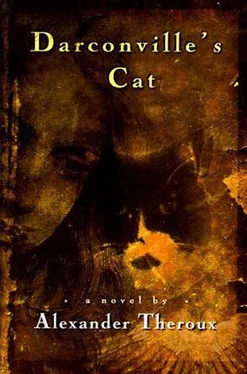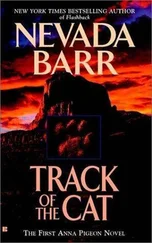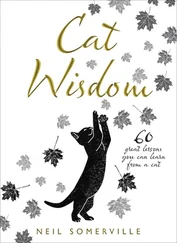“Then the ideal — what does it matter how? — disappears, the provocation to hate we spoke of. So enter hate. (Isn’t it odd that this sharpest response to someone occurs just when it isn’t asked for?) We once wanted to have what we now abhor — so what we love always tells us what we aren’t — but as what we loved wanted us to be what we couldn’t be when we loved, the haste of departure following the huff of dissatisfaction, it proves by the law of subtraction, if my mathematics is better than your judgment, not only that love wasn’t sufficient but that the object of it was nothing but a disastrous splodge not worth the tmesis of what value soever in the first place! Orals, I’m afraid, imply but do not posit aurais. Hate, having entered, now puts its feet up. It becomes a boarder! Then you understand one of the first lessons of hate, that we know each other best, not by strength, but by weakness, not as surpassing but as lacking such and such of the ideal — know each other, I say, but do I say more? For example, do I say that weakness makes people kin, creates accord, fosters alliance? The answer is yes when you speak of love. But when you speak of hate? Christ, man, when you speak of hate you speak of hell! Prevention becomes the heart of the policy! Swiftly, we do not wish to appear good so as not to be pitied, so, not to be pitied, wicked — why, even as satisfied as possible, so that our satisfaction may be truly hateful, the more quickly to ulcerate the soul not only of our occasional or permanent enemy, my friend, but of God himself! Yes, God ! Have you understood me to say that the hater is an average man?
“Are you then like all the other fools and pseudo-podiospores who’d have indifference the antonym of love? Indifference disgusts me! I am what I know and, to prove it, hate what I am — which at least gives me life. Indifference does not prompt us, sir, to unkind actions! You want hatred here. Hatred — if nothing else — is meant to be a provocation to an absent God, a thrust, you see, as though scandalous, frenzied, inexpiable, raging, and unutterable provocations were a way of forcing that God who’s let a love be lost to witness his will, with the hater thinking: if there were a God who possessed power, would he allow that virtue which supposedly honors him (even if by means of the shameless and pathetic proxy of it invested in another human being) to be sacrificed to such exotic uncompromising vice? The greater the punishment he feels merited by his action, the greater the value which the hater attributes to his crime! The extreme hater is always a dualist, polymath to ways both good and evil. But which is Sybaris? Which Crotona? Ha! Ha! Ha! No one knows , my friend, neither theologian nor thinker nor thrip, for just as once passionate sinners are claimed — according to biographical cliché—to make the greatest saints, the hater’s conscience is always activated by the remorse of what otherwise might have been; indeed, the remorse actually provides the energy for the crimes he dreams. He is afraid of discovering that the world is well-contrived and yet constructs the revolution of his abhorrence upon the reason of it, for since he is forced to accept the fact that love, lost, is evil the alternative of hate, found, must perforce be the only good at hand to address it — and so the breach actually becomes the observance in a desperate attempt to settle a matter of contradiction by means of conflicting evidence! There is no better poacher than an ex-gamekeeper. The ultimate profanity is the Black Mass .
“It was William Blake who wrote,
Mutual in one another’s love and wrath
all renewing
We live as One Man.
“To detest! To abhor, abominate, execrate! To hate! This becomes religion: an answer to the pansophistical lie, as rendered in the Gospels, that one must love, for the hater who unsuccessfully has tried now sees successfully he shouldn’t have. The astonished reason — if it wishes to articulate the dogma in action which also conveys its sense of scandal — is obliged to substitute the material of hatred for the revealed matter of God who in all matters, permissive, if not actually directive, is involved, face it! In that way it gives an exact expression to the impression made by the mystery on a reasoning faculty which has been abandoned, both naturally and supernaturally, to its own resources. All the ills with which God afflicts him can thus be considered as the ransom God — the Ontological Scold — exacts before he allows man the right to inflict suffering on others and to be unlimitedly vicious. To the extent that God, the arch-layer of plots, can be viewed as the original guilty party who attacked man before man could attack him, to that extent man has acquired the right and the strength, even as blind misosopht, to attack his neighbor: ‘I am pleased by the evil I do to others as God is pleased by the evil he has done to me.’ I mean, if knowledge ends by becoming a crime, what is called crime must therefore in some sense contain the key to knowledge! As a result, it is only by extending the sphere of crime further and further, even to its most inelastic limit — the disposition for someone’s utter annihilation — that the mind, reaching to these extraordinary crimes, will recover not only what has heretofore been prohibited knowledge, that knowledge infinitely greater than that which now we have, but also recover from a long servitude-of-revenge that any Supreme Being worth the candle must be forced thereafter to consider as a simple matter of res inter alios acta alteri nocere non debet , the evidence of which in earthly courts — as it then must be in celestial — is inadmissible. In-ad-missible ! I am with you, impenitent! I spit upon the injustice of the universe!
“But who can speak of the injustice of hatred? O say otherwise! It’s almost comical, isn’t it, that somehow our sense of justice never turns in its sleep until long after the sense of injustice, nudging it half the night, has been thoroughly roused? What makes so many applied Salvationists and advowees-of-nicety think so highly of love is that it hides their defects in the observer’s eye. But hate, disabused of such notions, sees those defects — and wakes to act! It douses the fairy lamps! It chooses direct verbs over substantives! It screams for the Lord of the Psalmist who breaks the ships of Tarshish with an east wind to pull someone apart! It multiplies its pain. The very nature of such a hunger is that it’s forever unappeased. The morrow of every victory is an-ticlimactic. It is a step toward reality, a spasm of will, a shout in the face of all violation of rights to equalize . Feel no guilt, then, Nes-torian. Blows break, that’s all. The shattering is only the natural contre coup of the strike.
“I have asserted that hatred is only love outraged, for the privation of something presupposes being accustomed to it ( privatio presupponit habitum ), and that between these two natures, so antipathetic, something essential is shared: each remains, by definition, the single and sole reservation of the other without which its own grandeur carries no weight — whom we love more than are indifferent to we are never far from hating. What other lesson can be found in the vine and the bays, the burr and the lintle? But then what is abstractly taught of the two that is ever heard, ever touched, ever seen? How miserably one ignores the other in the passion of what it wants, dismisses the other in the heat of what it seeks! But the tragedy is not that hatred is love outraged, nor that it is love gone by, but that an ideal has been squandered in innocence only to have to buy another to redeem it in guilt. How mistakenly can a person have wanted what, taken away, repudiates the meaning of life itself!
Читать дальше












